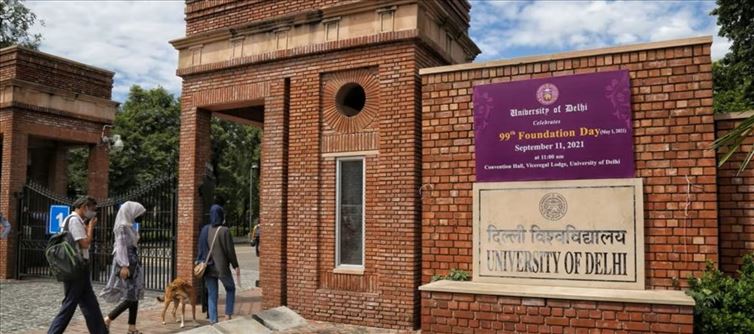Pushpa Telugu Movie Review, Rating
పుష్ప తెలుగు సినిమా రివ్యూ ,రేటింగ్
-
Revolver Rita Movie Review – Rita tries to fire, but ends up shooting blanks.
-
₹30,000 Crore Budget. Rotten Food. Fake Data. Zero Accountability — And Uttar Pradesh Still Has No Answers
-
Why India Works the Hardest and Earns the Least: The Productivity Nightmare Nobody Wants to Face
-
India Says ‘Build Here’ — Then Strangles Its Own Builders
-
The Real Threat to India and the U.S. Isn’t China — It’s Their Own Delusions.
-
50 Sèx Facts You Thought You Knew — Until Reality Slapped You in the Face
-
25 Reactors, 3% Power, No Regulator — And India Thinks It’s Ready for Private Nuclear? Be Serious.
-
Why Meghalaya Has No Fat People: The Brutal Fitness Truth India Refuses to Hear.
-
Asia’s Worst-Performing Currency? Modi’s ‘Masterstroke’ or Meltdown? The Internet Is Losing It.
-
Your Body Has Secrets and They Smell — Clean THESE 10 Spots Before It’s Too Late.
-
Keerthy Suresh Diffuses a Loaded Question — The Viral Moment That Exposed Media Toxicity
-
Stranger Things 5 Makes Vecna Even Scarier — Here’s the Nightmarish Reason Why
-
Stranger Things 5: Steve Harrington’s Fate Revealed — And It’s a Rollercoaster of Panic
-
Mr. Whatsit Exposed: Stranger Things’ Sweetest New Character Is Actually Its Most Terrifying
-
Fans Love It, Critics Don’t: Stranger Things 5’s Rotten Tomatoes Shockwave
-
Stranger Things 5 Vol. 1 Just Changed EVERYTHING — 10 Deadly Reveals That Break Hawkins Forever
-
UPSC EPFO Admit Card 2025 Released: Exam Scheduled for November 30
-
Samantha’s Lost Anjaan Bikini Pics Are Way Too Tempting – Too Hot, Too UNSEEN!
-
Luxury Train Journeys: The Most Expensive Trains in the World
-
🎃 Peri-Peri Pumpkin Seeds: High-Protein Snack to Power Your Day
-
📱 iPhone 17e: Affordable Model to Get iPhone 17-Like Camera Upgrade
-
Spyder Hurt Me the Most’ — Rakul’s Confession Sparks Massive Debate Online.
-
Samantha's Anjaan Bikini Scene In Re-Release – Heaven or Hell for Thirsty Fans?
-
Not Glamour. Not Luxury. Keerthy Suresh Exposes the Harsh Reality of Actresses
-
Rakul Preet Drops a Truth Bomb — And She Doesn’t Hold Back.
-
One Lyric Video. One Black Saree. One Actress Who Hijacked the Entire Hype — Sreeleela Drops Jaws!
-
Why No Party Wants to Fix Anything — The Rotten Truth Behind Indian Politics
-
Happy Birthday Udhayanidhi Stalin — The Dravidian Torchbearer Who Terrified His Critics and Electrified His Base.
-
How a 0.4% Minority Built Business Empires While The Rest of India Was Still Catching Up.
-
Vijay’s War on DMK Has Nothing To Do With Ideology — It’s Pure Ego and Udhayanidhi Stalin Triggered that
-
Nobody Wants the Commonwealth Games — So Why Is India Volunteering to Burn Money Again?
-
Cheap Cars, Cheap Solar, Cheap Everything — Except Jobs. China’s Hidden Implosion Explained
-
Jingle Bell Heist Review — A Sweet, Silly, Sparkling Heist of the Heart — A Fun Seasonal Surprise
-
Andhra King Taluka Review —Simple story. Strong heart. Big impact.
-
Avatar: Fire and Ash Faces a Brutal Reality — Opening Weekend Projections Drop Below Expectations
-
The Internet Got It Wrong — Millie Bobby Brown Clears the Air About Harbour ‘Complaint’ Drama
-
Max Is Alive But Trapped Inside Vecna’s Head — Her Season 5 Fate Explained
-
Will Byers Just Went FULL VECNA — Stranger Things’ Craziest Twist Yet Explained.
-
Stranger Things 5 Volume 1’s Final Scene Changes EVERYTHING — Kali’s Return Explained.
-
Vecna’s Real Plan Was NEVER About Hawkins — Stranger Things S5 Vol1. Ending Crazily Rewrites Season 1
-
Stranger Things: Season 5, Vol. 1 Review — The Beginning of the End is Here—And It’s a Breathtaking, Bruising Blast
-
Rakul’s Case Exposes the Dark Reality — The Digital Hell Actresses Are Living In
-
Shruti Haasan Shuts Down Trolls: ‘My Body, My Rules — Deal With It.
-
Zootopia 2 Review - Disney Doubles Down on Heart, Humor, and Mystery — And The Result, An Irresistible Sequel
-
Keerthy Suresh Drops Bombshell — What Made Keerthy Say NO?
-
The Dove Shampoo ‘Hack’ That Looks Genius—Until Reality Punches You in the Face
-
The Dark Side of Progress: What No One Wants to Admit About Today’s World
Empowering 140+ Indians within and abroad with entertainment, infotainment, credible, independent, issue based journalism oriented latest updates on politics, movies.
India Herald Group of Publishers P LIMITED is MediaTech division of prestigious Kotii Group of Technological Ventures R&D P LIMITED, Which is core purposed to be empowering 760+ crore people across 230+ countries of this wonderful world.
India Herald Group of Publishers P LIMITED is New Generation Online Media Group, which brings wealthy knowledge of information from PRINT media and Candid yet Fluid presentation from electronic media together into digital media space for our users.
With the help of dedicated journalists team of about 450+ years experience; India Herald Group of Publishers Private LIMITED is the first and only true digital online publishing media groups to have such a dedicated team. Dream of empowering over 1300 million Indians across the world to stay connected with their mother land [from Web, Phone, Tablet and other Smart devices] multiplies India Herald Group of Publishers Private LIMITED team energy to bring the best into all our media initiatives such as https://www.indiaherald.com





 click and follow Indiaherald WhatsApp channel
click and follow Indiaherald WhatsApp channel